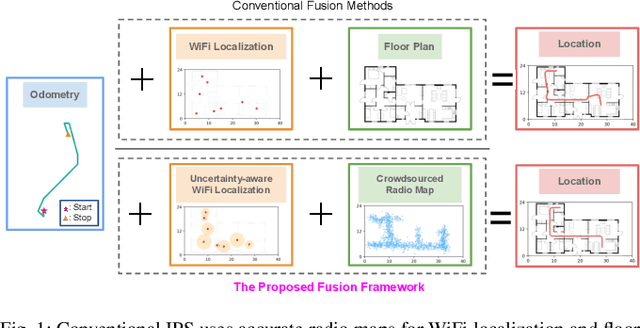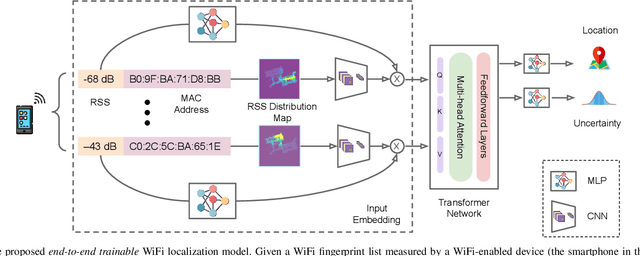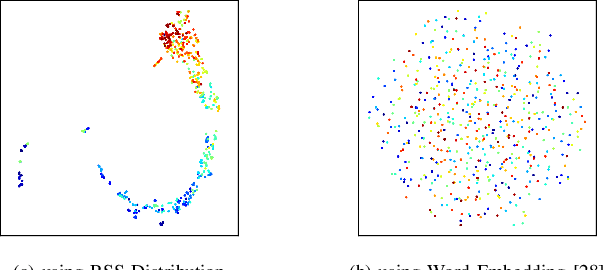Zhaoguang Yi
Multimodal Indoor Localization Using Crowdsourced Radio Maps
Nov 17, 2023



Abstract:Indoor Positioning Systems (IPS) traditionally rely on odometry and building infrastructures like WiFi, often supplemented by building floor plans for increased accuracy. However, the limitation of floor plans in terms of availability and timeliness of updates challenges their wide applicability. In contrast, the proliferation of smartphones and WiFi-enabled robots has made crowdsourced radio maps - databases pairing locations with their corresponding Received Signal Strengths (RSS) - increasingly accessible. These radio maps not only provide WiFi fingerprint-location pairs but encode movement regularities akin to the constraints imposed by floor plans. This work investigates the possibility of leveraging these radio maps as a substitute for floor plans in multimodal IPS. We introduce a new framework to address the challenges of radio map inaccuracies and sparse coverage. Our proposed system integrates an uncertainty-aware neural network model for WiFi localization and a bespoken Bayesian fusion technique for optimal fusion. Extensive evaluations on multiple real-world sites indicate a significant performance enhancement, with results showing ~ 25% improvement over the best baseline
A Learning-Based 3D EIT Image Reconstruction Method
Aug 30, 2022



Abstract:Deep learning has been widely employed to solve the Electrical Impedance Tomography (EIT) image reconstruction problem. Most existing physical model-based and learning-based approaches focus on 2D EIT image reconstruction. However, when they are directly extended to the 3D domain, the reconstruction performance in terms of image quality and noise robustness is hardly guaranteed mainly due to the significant increase in dimensionality. This paper presents a learning-based approach for 3D EIT image reconstruction, which is named Transposed convolution with Neurons Network (TN-Net). Simulation and experimental results show the superior performance and generalization ability of TN-Net compared with prevailing 3D EIT image reconstruction algorithms.
 Add to Chrome
Add to Chrome Add to Firefox
Add to Firefox Add to Edge
Add to Edge